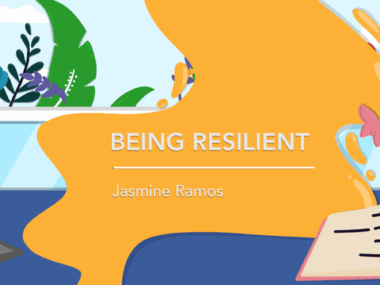This Is What Happens When Your Caregiver Gets COVID-19
While a columnist with SMA avoids the virus, she's not exactly safe from it, either
Written by |

When it comes to COVID-19, I’ve been pretty darn lucky.
I can count on one hand the number of people I know who haven’t gotten COVID-19 — myself among them. Somehow, miraculously, I’ve managed to avoid the plague. I could attribute my health to literal years of quarantine, but the truth is that it’s mostly a matter of luck.
But luck doesn’t last forever. Inevitably, COVID-19 will come for me, as it has for most everyone.
This time, though, it came for my dad.
For those who don’t know, my dad is my primary caregiver. He has been for as long as I can remember. Over the years, I’ve had several personal care assistants (PCAs) who would get me ready for the day. But Dad remained my primary caregiver, largely because he could do things that no one else could. I was used to the way he did things, which made it difficult for me to accept anyone else in the role.
There are benefits to having a lifelong caregiver, but the drawbacks are plentiful. Take, for example, COVID-19. What happens if your primary caregiver gets sick?
The past two weeks have been a crash course in answering that question.
The last weekend in August, my parents and I drove to Iowa for a wedding. My cousin — my dad’s nephew — was getting married. His whole family was going to be there, including relatives he hadn’t seen in years, so my dad decided to stay an extra night while my mom and I went home early.
The drive home was stressful in itself. My dad’s family lives on a farm, and my mom fell in love with a kitten she found wandering the grounds — a black-and-white, spotted runt with a particularly bad cold. It refused to stay in its cardboard box, so the three-hour drive was spent with a kitten crawling all over the van. At one point, it perched on my shoulder, nibbling my ear and absolutely going to town on my headphone cords.
Then there was the storm. About 20 minutes out, our phones screeched with an emergency alert. Our county was under a tornado warning, so it was imperative that we take shelter in the nearest basement. The sky looked relatively clear, so we booked it home, only for our wheelchair-accessible van to malfunction.
We barely made it inside before the rain started whipping.
There, I call my dad to let him know we got home safely. Apparently, the storm hit Iowa hard — about an hour after we left, the power went out, resulting in an impromptu end to the wedding reception. The power was out at my grandparents’ farm as well, meaning my dad and his family were sitting in the dark.
At this point, the kitten — sex to be determined — is meowing up a storm. We say goodnight, then settle in for its first night in civilization. Mom and I wake up exhausted. By the time Dad gets home, we’re beyond ready for things to get back to normal.
The next day, Mom breaks the news: “Your dad is sick.” He tests negative for COVID-19, but we suspect otherwise — he has all the symptoms, down to the hacking cough and bone-deep exhaustion. My mom and I feel fine, so we quarantine Dad in the basement and prepare for the long haul.
I’m writing this on day seven of the “Dad with COVID-19” saga. He gets a little better every day, but we’re assuming he’ll need another week, if not longer. Mom works full time, so you can imagine the chaos that characterizes our home life, especially with a new kitten on the loose.
We’re surviving. One might even say we’re falling into a rhythm. But the stress has taken a toll on me. I’m tired all the time and can barely do anything but play “The Sims 4” and listen to less-than-decent audiobooks. I’m getting up early, staying up late, and forgoing most of my self-care routines.
We talk about the impact of COVID-19 at the individual, interpersonal, and societal level. But we overlook the less obvious aspects of its influence. My dad has a relatively mild case; he will recover with minimal side effects. But his absence, albeit temporary, has wreaked havoc on my life, given his role as my primary caregiver.
I’ll be feeling the aftereffects of COVID-19 for weeks — if not months — to come.
Thanks for reading! You can follow me on Twitter and Instagram, subscribe to my newsletter, or support me on Substack.
Note: SMA News Today is strictly a news and information website about the disease. It does not provide medical advice, diagnosis, or treatment. This content is not intended to be a substitute for professional medical advice, diagnosis, or treatment. Always seek the advice of your physician or other qualified health provider with any questions you may have regarding a medical condition. Never disregard professional medical advice or delay in seeking it because of something you have read on this website. The opinions expressed in this column are not those of SMA News Today or its parent company, Bionews, and are intended to spark discussion about issues pertaining to spinal muscular atrophy.








Leave a comment
Fill in the required fields to post. Your email address will not be published.